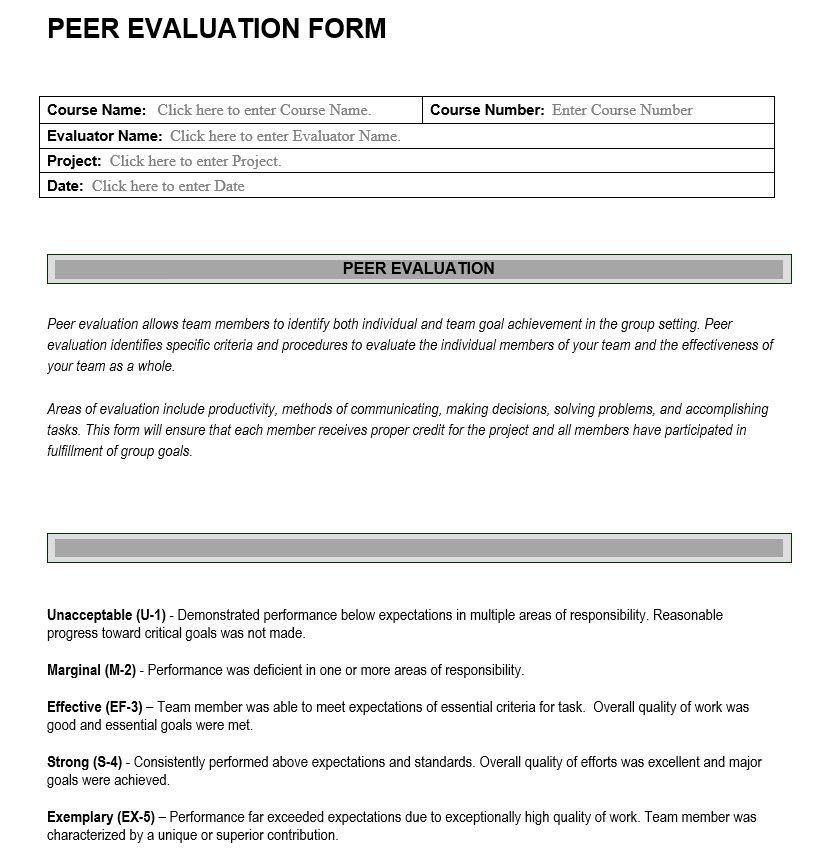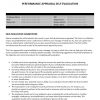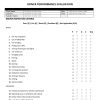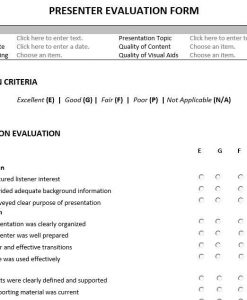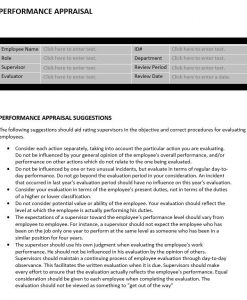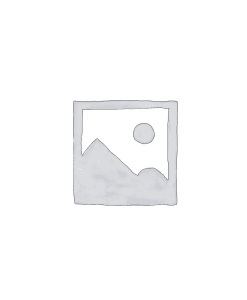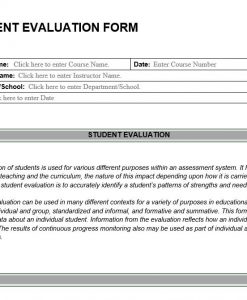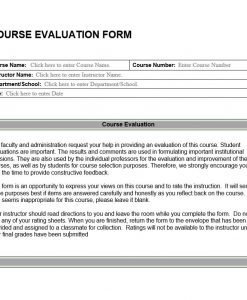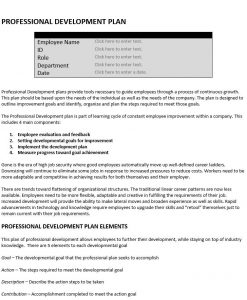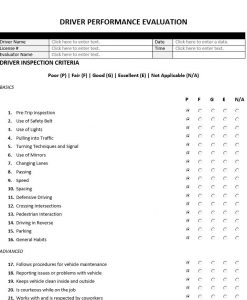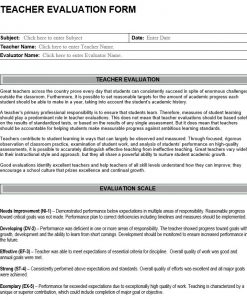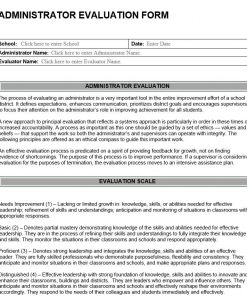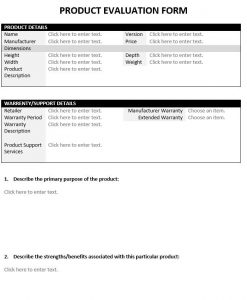Peer Evaluation Form
$10.00
The purpose of the Peer Evaluation Form is to rate the overall quality of a groups’ work. It can be used to evaluate and document performance and progress. Please note that this Peer Evaluation Form is confidential and should not be shared with group members.
Instructors who use teams commonly assign projects or other tasks to teams outside of class can benefit from the use of Peer Evaluation Forms. One of the more common questions about teams is how team assignments can be graded. One approach to grading team assignments is to give the same grade to every team member. However, giving every individual the same grade for a team assignment runs counter to the principle of individual accountability in cooperative learning. Further, it may reward and even encourage “hitchhiking” by some members of a team. However, determining individual grades for work products submitted by a team is a challenging task. Peer evaluation form can obtain information that may be helpful in determining individual grades.
Peer Evaluation Form is assessment of students by other students, both formative reviews to provide feedback. Peer Evaluation Form aims to improve the quality of learning and empower learners, where traditional forms can by-pass learners’ needs. It can include student involvement not only in the final judgments made of student work but also the selection of evidence of achievement. Peer evaluation form allows team members to assess other members of the team as well as themselves. Peer evaluation provides data that
Peer Evaluation Form can help self-assessment. By judging the work of others, students gain insight into their own performance. Peer and self-assessment help students develop the ability to make judgments, a necessary skill for study and professional life.
Peer Evaluation Form: Top 10 Tips
- Use clear guidelines that are easy to implement.
- Fully train students on the implementation and importance of the guidelines.
- Require assessors to justify their judgments.
- Create a classroom environment that feels safe for interpersonal risk-taking so that students will feel more confident in evaluating their peers.
- Share the responsibility of the final grade between the instructor and students if concern exists about student bias.
- Emphasize to students that the main focus of their peer assessment should be useful feedback, not grading.
- Help students learn to provide effective feedback by modeling appropriate, constructive criticism and descriptive feedback.
- Use small feedback groups so that feedback can be explained and discussed with the receiver.
- Stress benefits of being a peer assessor to students, such as it helps them evaluate their own work and become more self-directed learners.
- Train students how to interpret feedback so that they can make appropriate connections between the feedback received and the quality of their work.
Related products
Business
Business
Business
Academic
Academic
Business
Business
Academic
Academic
Business

